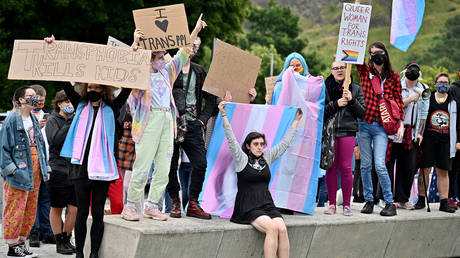
A Bristol University student claims the school failed to protect her from trans activists when she said only biological women can give birth
Raquel Rosario-Sanchez, a PhD student, is suing Bristol University for allegedly failing to address a three-year “hate campaign” against her by trans activists, which she said was triggered by her declaring that only biological women can give birth.
Rosario-Sanchez claims her statement was made during a disagreement about the school deeming the word ‘maternity’ to be “exclusionary.” After she made her declaration, she was reported to the human resources department for allegedly being transphobic. She goes on to say in her complaint that the school investigated her and she was later told to apologize.
The student also claims she was targeted by activists over her involvement with a feminist group called Women’s Place UK, which has been deemed a hate group by some activists for its views on transgender issues.
“I have been bullied and harassed by students at the University of Bristol for my feminist principles for over three years,” Rosario-Sanchez wrote about the suit, according to The Daily Mail, adding that her legal action is “about how an elite university treats its students, particularly international students, when nobody is watching.”
Rosario-Sanchez claimed during her hearing that activists had spread “malicious rumors” about her and attempted to intimidate her. She was accused of “spreading hate” and protested when she spoke at a Women’s Place UK event.
“I just felt very sad because I just want to live my life, go to campus and go to my center and not have to face intimidation,” she said.
Rosario-Sanchez is from the Dominican Republic and has attended Bristol University since January of 2018. She says a disciplinary hearing was launched after she filed a bullying complaint, but the proceedings were soon abandoned, leading her to legal recourse.
Bristol University has been branded the UK’s “wokest” university by numerous activists, including the group Fair Play for Women. The school recently outlined “catgender” for their staff, providing instructions on how to deal with students who may identify as felines. The pronoun guide also highlights “emojiself,” which applies to people who use emojis to express whatever their preferred gender is.




